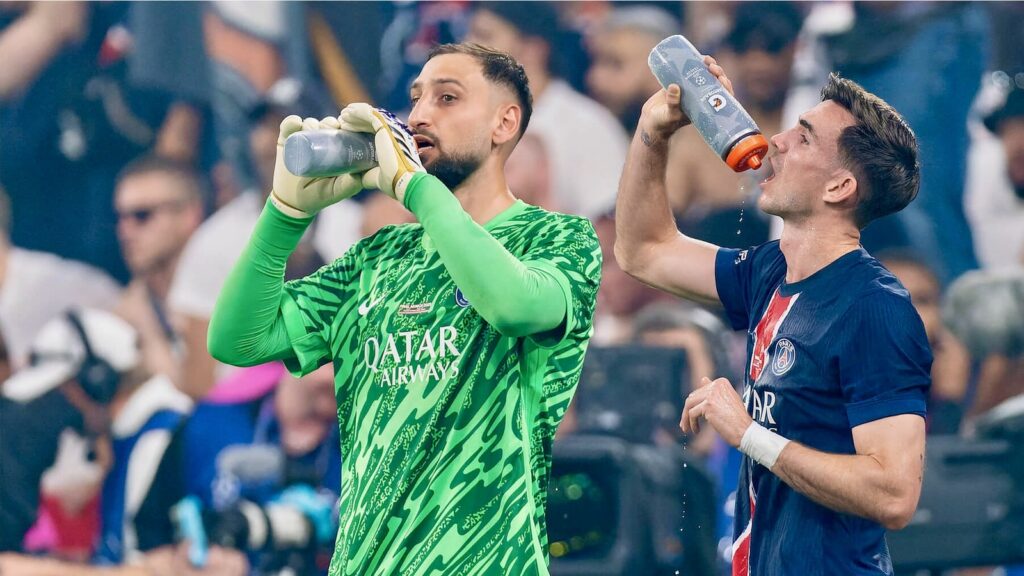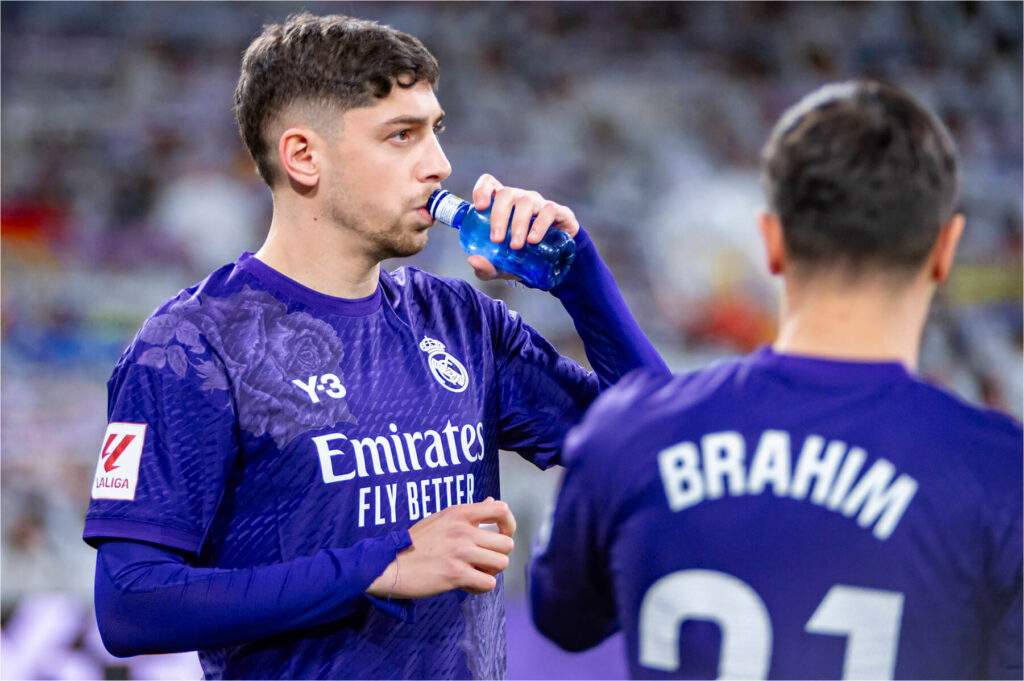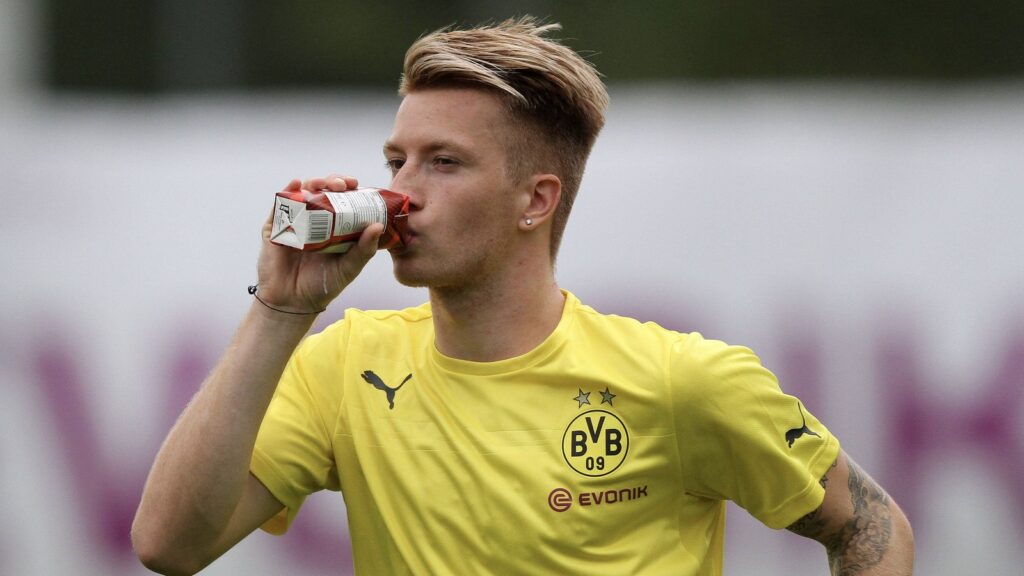Top-level football is a physically demanding game in which players need to be in excellent physical condition. Technical skill, mental resilience, tactical understanding, are all important. But the player’s diet has a huge part in bringing about the best performance for the team on the pitch. Footballers can make use of top-notch and ultra-modern individually customized meal plans for quick recovery, high performance, and injury prevention.
However, what are the foods these professional athletes consume to supply their bodies and help them cope with such intense training schedules and match demands? By focusing on a footballer’s diet, hydration routines, and position-specific nutritional needs, this article aims to make the subject more digestible.
The Basics of a Footballer’s Diet
High-energy exercises such as training and competition call for a balanced diet of macronutrients, micronutrients, and hydration in order to provide the right amount of energy. Every meal is prepared to support the player’;s general health, performance, and recovery.

1. Carbohydrates: The Fuel for Endurance
Footballers are constantly on the move – they act on an average of 10-12 km per match, which is almost very fast. With high intensity, they perform activities like sprinting, tackling, and jumping. Therefore, they need to consume carbohydrates because they have an essential role in supplying energy for the body. Carbohydrates provide the body with glycogen – the main source of energy that cells use with prolonged physical activity.
To maintain their power levels, football players eat mainly these complex carbohydrates:
- Whole grains (brown rice, whole wheat pasta, oats)
- Potatoes (sweet potatoes are often preferred)
- Fruits (bananas, apples, berries)
- Vegetables (spinach, kale, carrots)
Not only are these foods high in fiber, but the fiber is what helps slowly and steadily release the energy.

2. Protein: For Muscle Repair and Recovery
During the training and matches, footballers challenge their muscles to very hard work. For muscle repair and recovery protein plays a very important role in it. Protein not only helps in the growth of muscle mass but is also a helper in the recovery procedure that follows rigorous physical activity.
Examples of protein-rich foods consumed by footballers are:
- Chicken breast (lean meat)
- Turkey
- Salmon and tuna (rich in Omega-3 fatty acids)
- Eggs
- Greek yogurt
- Legumes (lentils, chickpeas)
- Protein shakes (usually taken after workouts for fast absorption)
On average, a portion may contain 20-30 grams of protein per meal. It is often stressed that post-workout protein meals should be consumed to soften muscle recovery.

3. Fats: Essential for Hormone Production and Energy
Though the main energy supply for footballers comes from carbohydrates, fat is also an important aspect of a footballer’;s diet. Unsaturated fats are good for overall health. They help in the process of breaking down vitamins, and are also a part of the hormone production. It is necessary in the process of muscle growth and recovery.
Generally, footballers can get their healthy fats from the following sources:
- Avocados
- Nuts (almonds, walnuts)
- Olive oil and coconut oil
- Fatty fish (salmon, mackerel)
- Nut butters
Such fats also contribute to energy staying especially in long matches or training sessions.
4. Hydration: The Key to Performance
Hydration stands among the ignored pros of football nutrition. One of the risk factors for performance decrement is dehydration, cramps, and injuries. Since football is physically demanding, footballers have to stay hydrated before, during, and after the game.
Players drink water and drinks rich with electrolytes in fluid and mineral replacement for what they lose through sweat so that sodium, potassium, and magnesium levels in the body are maintained. This helps muscles work optimally and prevents cramping.
They aim to drink 500-600 ml of water approximately 2 hours before kickoff and then keep sipping water throughout the game. On game breaks, they drink sports drinks or consume electrolytes to put back the fluids lost.

Supplements in a Footballer’s Diet
Even though food is the primary source of nutrients, today’s footballers also employ supplements to support their performance, recovery, and nutritional requirements. Some of the most common supplements are:
- Protein powder: It enables players to get their protein requirement met in a very short period after the workout session.
- Creatine: Basically, it supports hard and intense work which results in strength and explosiveness to be improved.
- Branched-chain amino acids (BCAAs): They help the muscles to recover and at the same time, they reduce the muscle pains.
- Omega-3 fatty acids: These are the components of fish oil that assist the body with inflammation and good joint health.
- Electrolyte tablets: Through them, one is able to replenish sodium and potassium levels lost during an intense workout.
- Multivitamins: This helps the athletes if the normal diet they follow does not meet the required amounts of vitamins and minerals.
Supplementation therapy is only to be followed under the guidance of a medical professional as unregulated and excessive consumption may result in deleterious health outcomes.

A Proper Diet for Footballers
In modern football, it is very important that players should have a properly and strategically designed nutrition plan. It enhances their performance, recovery, and overall health through the use of hydration and supplementation. Each player’s needs can vary greatly depending on their position. However, all athletes agree that nutrition is a vital factor in living and performing at the highest levels on the pitch.
Nutrition in Football is not regarded as a last resort anymore, it comprises a big part of a footballer’s training regimen. As the game keeps getting more rigorous, the methods in which players employ nutrition will continually be changing.
